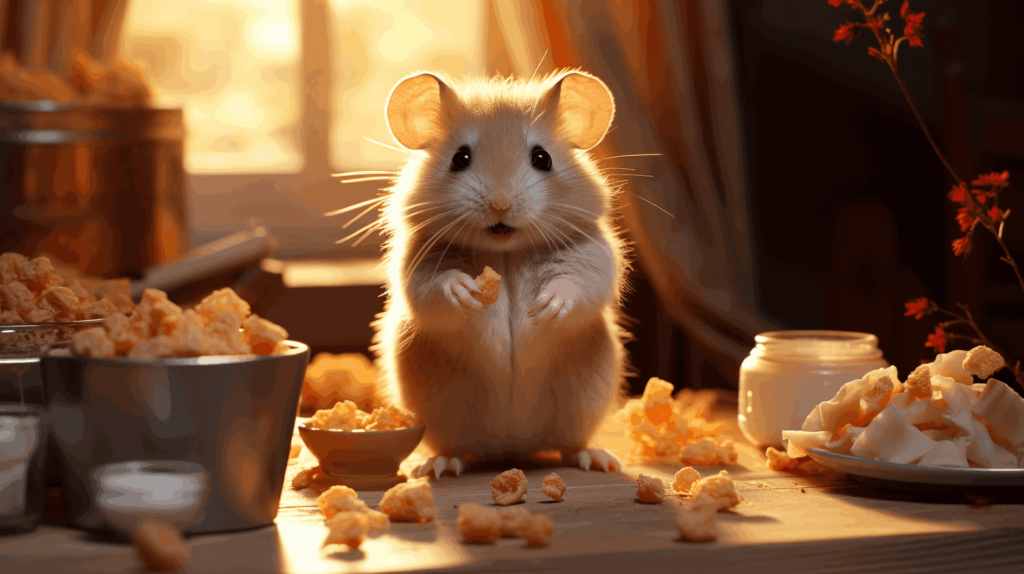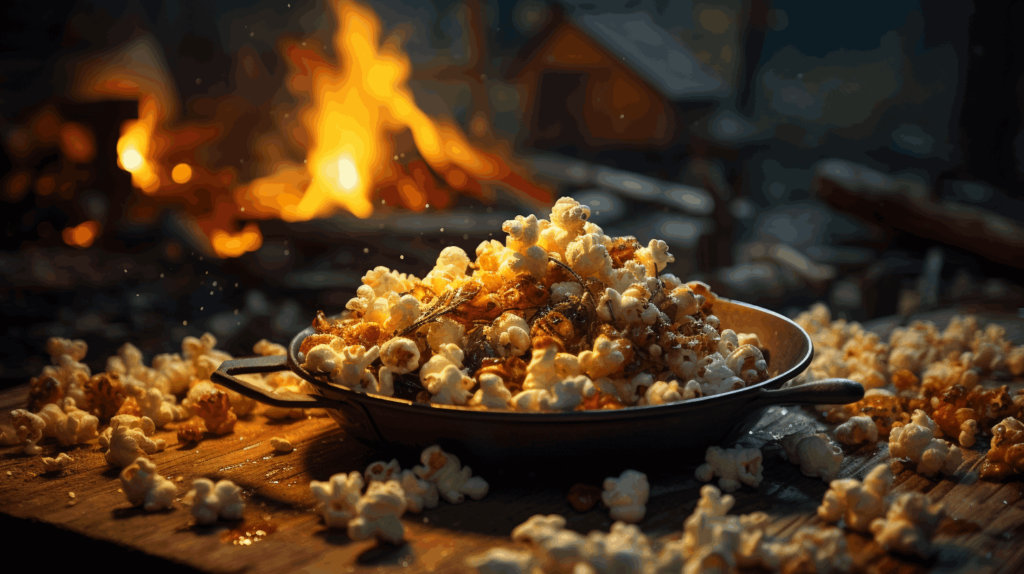Are you tired of eagerly awaiting the satisfying sound of popcorn popping, only to be left with disappointingly small and chewy kernels? Look no further, as this article delves into the causes and solutions for small popcorn.
We explore the factors contributing to this less-than-ideal outcome, from old and dry kernels to improper cooking temperatures.
By following our tips and tricks, you’ll soon be enjoying more giant, more enjoyable popcorn that will satisfy even the most discerning popcorn connoisseur.
Key Takeaways
- The moisture content of popcorn kernels and the cooking temperature are essential factors in popcorn size.
- Trapped steam, incorrect oil quantity, poor heating method, and popping popcorn too early can produce small, chewy popcorn.
- Solutions include using alternative cooking methods, shaking the popcorn while cooking, ensuring the correct oil quantity, cooking over medium heat, and popping popcorn close to serving time.
- Tips for making popcorn pop more extensively include soaking old kernels, purchasing fresher kernels, preheating the oil to the recommended temperature, storing kernels properly, and exploring different popping methods.
Factors Affecting Popcorn Size
One of the key aspects discussed in the knowledge is the understanding of factors affecting popcorn size.
Several factors can contribute to popcorn popping too small. Firstly, old and dry kernels with low moisture content tend to produce more miniature popcorn as they lack the necessary moisture for expansion.
Secondly, insufficient cooking temperature in popcorn makers can produce underpopped kernels, leading to smaller sizes.
On the other hand, kernels with excessive moisture won’t pop properly, resulting in more miniature popcorn. Too much oil can also introduce excessive moisture, causing more miniature popcorn.
Lastly, maintaining the correct oil-to-kernel ratio is crucial for optimal popcorn size.
Causes of Small and Chewy Popcorn
Occasionally, incorrect oil quantity or poor heating methods can produce small and chewy popcorn. One of the causes of small and chewy popcorn is using too much or too little oil. Too much oil can lead to excessive moisture, preventing the kernels from popping correctly and resulting in a chewy texture. On the other hand, using too little oil can cause the popcorn to dry out and become rigid.
Poor heating methods, such as cooking the popcorn at too high or too low heat, can also affect the final texture. Maintaining the correct oil-to-kernel ratio and cooking the popcorn over medium heat is essential for optimal results.
Additionally, popping the popcorn too early can produce a dry and chewy texture, so it is best to pop the popcorn as close to serving time.
Solutions for Small and Chewy Popcorn
To prevent small and chewy popcorn, it is crucial to use alternative cooking methods that avoid trapped steam, ensuring the popcorn pops to the desired texture. Trapped steam during stovetop cooking is one of the leading causes of small and chewy popcorn.
To avoid this, shaking the popcorn while cooking to distribute the oil and heat evenly is essential. Additionally, using the correct oil quantity is essential for proper coating. Cooking the popcorn over medium heat prevents premature popping and improves texture.
Another tip is to pop the popcorn close to serving time and store it in an airtight container. By following these solutions, you can achieve more significant and more satisfying popcorn.
Tips for Making Popcorn Pop Bigger
Our team has discovered several valuable tips to help you achieve more giant popcorn kernels when making popcorn.
Firstly, using fresh popcorn kernels with the correct moisture content is essential. Soaking old kernels in water for 10 minutes before popping can help increase their moisture level. Additionally, purchasing fresher kernels within 6 to 12 months of purchase can also lead to more giant popcorn.
Preheating the oil to a temperature between 400 to 460°F is crucial for optimum popping. Storing kernels in an airtight container can prevent moisture loss, resulting in larger kernels.
Lastly, experimenting with different cooking methods and techniques, such as using alternative cooking methods and shaking the popcorn during cooking, can help achieve more giant popcorn.
Overall Tips for Making Popcorn Pop Bigger
One important tip for making popcorn pop bigger is to maintain the ideal moisture content of the popcorn kernels. Popcorn kernels with low moisture content produce more miniature and less fluffy popcorn. To ensure the ideal moisture content, storing the kernels in an airtight container is recommended to prevent moisture loss.
Additionally, soaking old popcorn kernels in water for 10 minutes before popping can help rehydrate them and improve the popping size.
Another tip is to preheat the oil to the recommended temperature, usually between 400 to 460°F, as this helps to create the necessary heat for the kernels to pop fully.
Lastly, it is essential to pop the popcorn as close to consumption time as possible for freshness and optimal size.
Conclusion
In conclusion, understanding the factors that affect popcorn size and implementing the appropriate solutions can significantly enhance your popcorn-making experience.
You can achieve more extensive and enjoyable popcorn by addressing issues such as old kernels, insufficient cooking temperature, excessive moisture, and improper oil-to-kernel ratio.
Additionally, utilizing alternative cooking methods, practicing proper shaking techniques, and adjusting oil quantity and heating temperature will further enhance the size and quality of your popcorn.
Elevate your popcorn game and indulge in fluffy, crunchy goodness with these tips and tricks.


